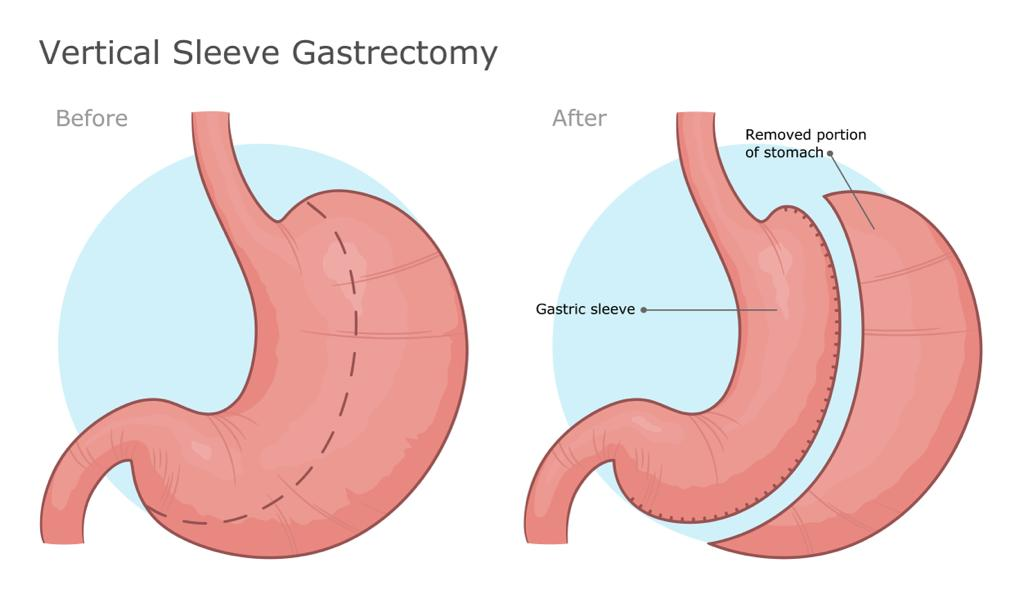Can Gastric Sleeve Help with Emotional Eating Issues?
Emotional eating is a challenge that many individuals face when trying to manage their weight and overall health. This behavior often arises from stress, anxiety, or depression, leading individuals to use food as a source of comfort. It can create a vicious cycle where emotional eating leads to weight gain, which in turn worsens emotional struggles. One potential solution that people have explored to help with emotional eating issues is the gastric sleeve in Dubai(تكميم المعدة في دبي ). But can this surgical option really address emotional eating, or is it only a tool for physical weight loss?
Understanding Emotional Eating:
Emotional eating occurs when people eat in response to feelings rather than hunger. Many times, it's triggered by stress, boredom, or even happiness. It can be a way to cope with negative emotions or to reward oneself during positive times. However, emotional eating can become problematic, especially when it results in overeating and weight gain. It can be difficult for someone to distinguish between physical hunger and emotional hunger, which can lead to an unhealthy relationship with food. This pattern is often tied to long-term psychological stress and can contribute to conditions like obesity, diabetes, and other health problems.
How Gastric Sleeve Works:
The gastric sleeve is a surgical weight loss procedure that involves removing a significant portion of the stomach. The remaining stomach is reduced to a sleeve-like shape, which is much smaller than the original organ. This reduces the stomach's capacity and alters how the body processes food. With a smaller stomach, patients often feel full more quickly, which can help with portion control. Additionally, the procedure can also reduce hunger hormones, which may help patients maintain better control over their eating habits.
While the gastric sleeve is primarily used for weight loss, many people wonder if it can have an impact on emotional eating. The procedure might help individuals by limiting the amount of food they can consume at one time, which can help them avoid overeating during emotional episodes.

The Psychological Effects of Gastric Sleeve Surgery:
Gastric sleeve surgery can have significant psychological effects. After the procedure, many individuals experience an improvement in their self-esteem and body image. This can, in turn, help address the psychological aspects of emotional eating. The act of losing weight can provide a sense of accomplishment and control over one's life, which may reduce the need for food to cope with emotions.
However, it's important to note that gastric sleeve surgery is not a cure for emotional eating. While it can help with portion control and hunger management, it does not address the underlying psychological issues that contribute to emotional eating. Many individuals who undergo the procedure still need to work on their emotional health and coping mechanisms to ensure lasting success.
Gastric Sleeve's Impact on Hunger and Satiety:
One of the main reasons the gastric sleeve procedure can help with emotional eating is due to its impact on hunger and satiety. After surgery, patients often experience reduced hunger levels because the portion of the stomach that produces the hunger hormone (ghrelin) is removed. This can lead to a significant decrease in cravings and an overall reduction in the urge to eat when emotions run high.
However, it's essential for patients to be mindful of their eating habits after the procedure. Emotional eating is deeply ingrained for some people, and even with a smaller stomach, they may still reach for food in times of distress. Over time, the brain's reward system can rewire itself to seek food for comfort. Therefore, psychological support and behavior modification are critical for achieving lasting success in emotional eating management.
Managing Emotional Eating After Gastric Sleeve Surgery:
While the gastric sleeve may help reduce the amount of food consumed during emotional episodes, it is essential to focus on the emotional triggers that lead to these behaviors. Support systems, such as counseling or therapy, are incredibly helpful in guiding patients through the emotional aspects of eating. Behavioral therapy, cognitive-behavioral therapy (CBT), and mindfulness-based approaches are just a few strategies that can support individuals in overcoming emotional eating.
In addition, practicing mindfulness and finding alternative coping strategies, such as exercise, meditation, or journaling, can be extremely helpful. This creates a holistic approach to emotional eating, one that targets both the physical and psychological aspects of the condition.
Building a Healthier Relationship with Food:
The gastric sleeve can be an effective tool in helping people regain control over their eating habits. However, it is important to build a healthier relationship with food after the surgery. This involves learning to eat in a balanced, mindful way. Instead of viewing food as a source of comfort, individuals can focus on nourishing their bodies with healthy, wholesome meals. With the help of nutritional counseling and emotional support, individuals can better understand the role that food plays in their lives and make more conscious decisions about their eating habits.
A positive relationship with food is crucial for long-term success after the surgery. People who have undergone the procedure should strive to develop a healthy mindset, understanding that food is fuel for the body and not a solution to emotional discomfort. By changing the way they approach food, individuals can continue to manage emotional eating even after the physical benefits of the gastric sleeve procedure have been achieved.
Conclusion:
In conclusion, the gastric sleeve procedure may assist in addressing some of the physical aspects of emotional eating by limiting the amount of food that can be consumed at one time. However, it is not a cure-all for emotional eating issues. Individuals who undergo this surgery must be committed to addressing the emotional triggers behind their eating habits and work towards building a healthier, more balanced relationship with food. With the right support and mindset, patients can overcome emotional eating and achieve lasting success in their weight loss and emotional health journey.